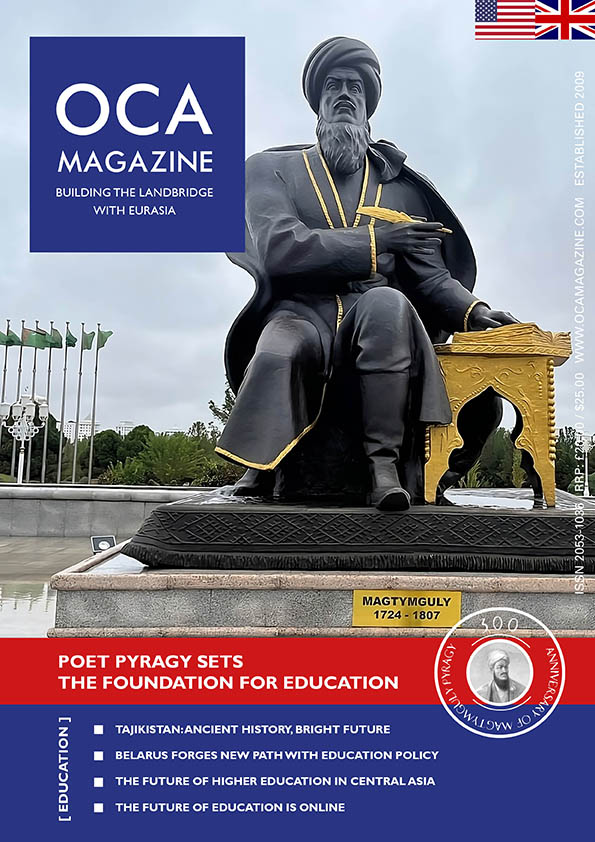OCA# Education edition
Welcome Word

“Education is what remains once what you have learned at school has been forgotten”
This famous saying (which has a multitude of written forms) has been attributed to many people over time from Albert Einstein to B.F. Skinner.
What is education, therefore? It sounds so simple and obvious a question and answer. After all, almost everybody has gone through some form of formal education for a period of their childhood. But let’s step back for a moment and consider the question. I find it rather more complex than it first seems.
Is it just the collection of school buildings, teachers and classmates that we might ruminate on and say things like, “it was harder in my day” at bland dinner parties and social gatherings? Is it about exams and grades and certificates that will get you a good job? For many that appears to be the prime goal of education – after all if you were taught Latin at school (which is now a very dead language), is your knowledge restricted to being better able to formulate an answer to the Times Cryptic Crossword on a lazy Sunday morning?
As a parent I often wonder how best to balance the struggle between the goals of formal education with the goals of raising healthy, motivated children who grow to become responsible and contributing members of families and society. Academic skills are important but so too is the educational journey from kindergarten through to college and university. It is a time when young people develop many interconnected abilities and relationships that transcend what is learned in the classroom. These experiences are not ones that can be formally taught.
Swiss developmental psychologist, Jean Piaget, believes that “The principle goal of education in the schools should be creating men and women who are capable of doing new things, not simply repeating what other generations have done.” Nelson Mandela, former South African president, would often say that “education is the most powerful weapon which you can use to change the world.” While psychologist John Dewey believed that “education is not preparation for life; education is life itself.”
This last quote resonates with me quite a lot. If you think about it our life experiences are our education, formal or otherwise. We learn as we go through life, sometimes we have to make mistakes or fail to reach our objectives and improve ourselves such that we develop and reach our true potential. And, as many authors from Central Asian countries note in this issue, as the world changes it becomes extremely hard to predict how to educate our children of today for the jobs of tomorrow. What institutions can do, however, is inspire students to be curious, explore topics from many different angles, understand both history and culture at home and abroad and be resilient in the face of the challenges that life will throw at us. Perhaps this is the secret to a good “education”.
Enjoy the issue!
Nick Rowan
Editor-in-Chief
Open Central Asia Magazine
